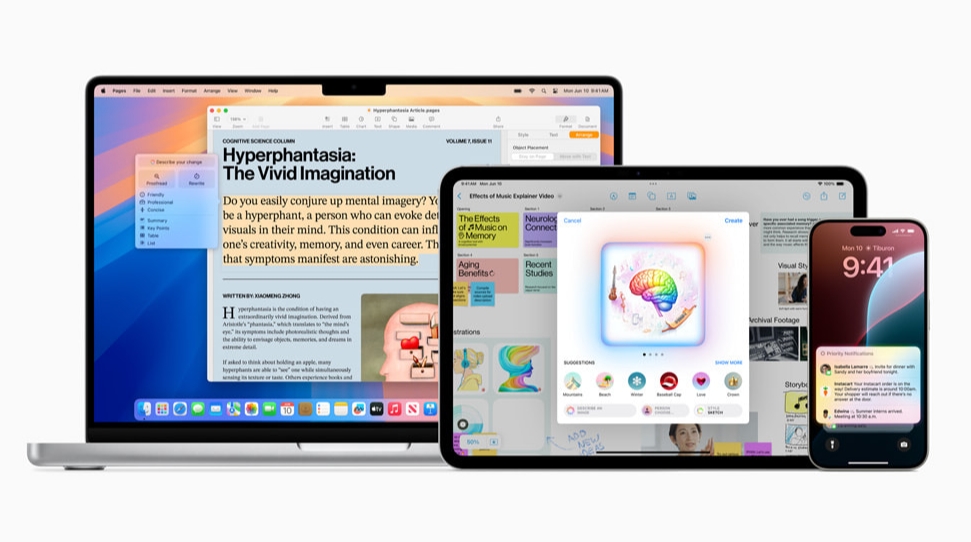Apple recently announced its artificial intelligence plan, Apple Intelligence, but its rollout has been far slower than expected. The plan initially supports only some devices and US English, and the developer beta version has been postponed to the end of summer. Only a preview version will be launched in the fall, and users even need to join the waiting list. This is very different from Apple’s previous strategy of releasing autumn features at WWDC, marking its adoption of a more cautious and progressive strategy in the field of AI.
According to Bloomberg, Apple’s artificial intelligence (AI) plans will be a long and slow process. The Apple Intelligence program, announced by Apple last week, is not expected to be available for developer testing until later in the summer. That means it won't be among the first betas of Apple's new operating system update, and will only be available as a preview this fall. According to reports, the program is only available on select devices and only supports US English, and users may need to join a waitlist to try it out.

Bloomberg pointed out that Apple’s move marks a change in its strategy, from releasing autumn features at the Worldwide Developers Conference (WWDC) to revealing features that will be launched late or early next year in advance, rather than reflecting the launch of autumn features. characteristic. The report said that this approach has several benefits, such as making staffing arrangements easier. Apple can assign engineers to specific functions and release them after completing technical development, and then move them to other functions.
Meanwhile, PYMNTS reported last week that Apple's new AI efforts could "change the way consumers interact with their devices and, more importantly, how they shop." If Apple gets its way, users' iPhones will learn about their shopping preferences and predict the next purchase. Apple Intelligence will be able to analyze their browsing history, purchasing patterns and social media activity. The company is also trying to change the way businesses interact with customers, experts said. By integrating OpenAI's ChatGPT, Apple devices will soon be able to handle customer inquiries, process orders and even provide product recommendations.
It is worth noting that the plan adopts a gradual rollout strategy, first supporting only US English, and Apple will have more time to train AI models in other languages, which is a major project. All the above signs indicate that Apple is working towards providing more automated and intuitive services to consumers.
The slow advancement of Apple Intelligence reflects its cautious attitude in the field of AI and also heralds its in-depth efforts in AI applications in the future. Although this incremental strategy slows things down, it may lead to a more stable and improved product experience, and ultimately better services for users.